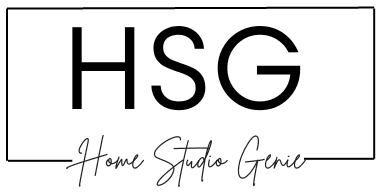Learning the piano can definitely help you become a better music producer. The piano is a very versatile instrument that can create a wide variety of musical styles.
Learning how to play the piano will give you a strong foundation in music theory, which will be essential for your work as a producer.
You will also learn how to read sheet music, which can be helpful for working with other musicians.
I often get asked whether learning the piano is essential for music production. It’s a common question among aspiring producers who are eager to dive into the world of music creation.
So, let’s explore this topic and find out if learning the piano can truly enhance your skills as a music producer.
Does Learning The Piano Make You Better At Music Production?
Yes, learning the piano can definitely help you become a better music producer. The piano can be used to create a wide variety of musical styles.
Learning how to play the piano will give you a strong foundation in music theory, which will be essential for producing tracks.
You will also learn how to read sheet music, which can be helpful for working with other musicians.
Learning to play the piano will give you a better understanding of how different instruments work together. This will help you when you are arranging and mixing your tracks.
For example, if you know how to play the piano, you will be able to understand how the different notes on the keyboard relate to each other.
This will make it easier for you to create harmonies and melodies that sound good together.
The piano will always hold a special place in music production. It’s versatile and includes a wide range of notes. This makes it an excellent instrument for composing melodies, harmonies, and chords.
Learning to play the piano can give you a solid foundation in music theory, ear training, and composition. These are valuable skills for any music producer.
Should I Learn Piano Before Music Production?
Some people find that it is helpful to learn piano before they start producing music. Others just prefer to learn them at the same time.

If you’re already familiar with the piano, it will definitely give you a head start in your productions.
If you’re not sure if you want to learn piano, you can always start with music production and see how it goes.
While it’s not mandatory to learn the piano before starting your journey in music production, it can definitely be beneficial.
The piano is often considered the gateway to understanding music theory and composition.
By learning to play the piano, you’ll gain a deeper understanding of scales, chords, and progressions. This knowledge will help you create more complex and interesting musical arrangements.
Personally, I found that learning the piano before diving into music production allowed me to develop a strong musical sense.
It gave me the ability to play melodies and chords intuitively, which greatly enhanced my creativity in the studio.
Understanding the piano also helped me communicate more effectively with other musicians during collaborations.
Should Music Producers Learn Piano?
The decision of whether or not to learn piano is up to you. However, if you are serious about music production, I would recommend at least learning the basics of the piano.
As a music producer, your primary goal is to create compelling and engaging music.
Benefits of learning piano for music production:
- You will learn music theory.
- You will learn how to read sheet music.
- You will learn how to play different instruments.
- You will develop your musical ear.
- You will become more creative.
While you can certainly achieve this without knowing how to play the piano, learning the instrument can significantly enhance your production skills.
It opens up a world of possibilities and allows you to express yourself musically in ways you might not have considered before.
One of the advantages of knowing how to play the piano is that it enables you to experiment with different chord progressions, voicings, and melodic ideas.
You can easily try out different harmonies and melodies, improvising on the spot to find what works best for your tracks.
This real-time exploration can lead to unexpected and exciting musical discoveries.
Having a solid understanding of music theory empowers you to make informed decisions when arranging and structuring your compositions.
It helps you choose the right chords, and create interesting harmonic variations. It will also help establish a strong musical foundation for your tracks.
Do I Need To Know Piano To Make Beats?
No, you do not need to know piano to make beats. There are many different ways to make beats, and you can use any instrument that you are comfortable with.
Many beginners also wonder if knowing how to play the piano is necessary for making beats. The answer is no, it’s not a strict requirement.
Many successful beatmakers and producers have created incredible tracks without playing a single piano key.
Beat-making often revolves around drum patterns, samples, and sound design.
I often find that in beat-making, understanding music theory and having some piano skills can be advantageous.
It allows you to create melodic elements and chord progressions that complement your beats.
You can add catchy hooks, beautiful melodies, and unique chord structures to make your beats stand out from the crowd.
In my experience, knowing how to play the piano has expanded my beat-making capabilities. I can experiment with different chord progressions and melodies, giving my beats a distinct musicality.
It’s like adding an extra layer of creativity to the rhythmic foundation.
Which Instrument Should I Learn For Music Production?
The best instrument to learn for music production is the one that you are most interested in. If you love the piano, then by all means, learn the piano.
The most important point is to find an instrument that you enjoy playing and that you are motivated to learn.
While the piano is undoubtedly a valuable instrument to learn for music production, it’s not the only option. There are several other instruments that can bring unique qualities to your productions.
The choice ultimately depends on your musical preferences and the genre you specialize in.
Guitar: Learning to play the guitar can be a great choice, especially if you’re into genres like rock, pop, folk, or blues. The guitar offers a different set of possibilities compared to the piano. It can inspire you to create catchy riffs, intricate arpeggios, and dynamic strumming patterns.
Drums: The rhythmic foundation of a track is crucial, and learning to play the drums can greatly improve your sense of timing and groove. It allows you to program more realistic and dynamic drum patterns in your productions. Even if you don’t have access to a physical drum kit, virtual drum software can help you learn and experiment with different drumming techniques.
Bass: The bass guitar or even a synthesizer can be a fantastic instrument to learn for music production. The bass provides the low-end foundation and adds depth and groove to your tracks. Understanding bass lines and their relationship with other elements in the mix can elevate the quality of your productions.
In the end, the choice of instrument boils down to your personal preferences and the style of music you want to create.
Each instrument brings its own unique qualities and can enhance your creative process in different ways.
So, choose an instrument that resonates with you and inspires your musical journey.
Final Thoughts
In conclusion, while learning the piano is not a strict requirement for success in music production, it can undoubtedly provide numerous benefits.
The piano offers a solid foundation for understanding music theory, melody, harmony, rhythm, and chord progressions.
It’s important to remember that music production is a highly individualized and diverse field, and different paths can lead to success.
Ultimately, the choice to learn the piano or any other instrument depends on your personal preferences, creative goals, and the genres you aim to specialize in.
Experimentation, exploration, and a dedication to continuous learning are key to developing your unique sound as a music producer.
So, if you feel drawn to the piano and have the opportunity to learn it, go ahead and embrace the journey.
On the other hand, if the piano doesn’t resonate with you, remember that there are various other instruments, techniques, and approaches that can contribute to your growth as a music producer.
FAQs
How long does it take to learn piano for music production?
It depends on how much time you are willing to put into it. If you practice regularly, you can learn the basics of the piano in a few months.
What are the drawbacks of learning piano for music production?
Can I learn piano if I can’t read music?
Yes, you can learn piano even if you can’t read music. There are many resources available that teach you how to play the piano without reading music.
Can a non-musical person learn piano?
Yes, everyone has the potential to learn music, regardless of their natural ability. If you are interested in learning piano, go ahead and give it a try.
Can I use MIDI controllers instead of learning to play the piano?
Yes, MIDI controllers are a fantastic alternative to playing the piano. They allow you to trigger virtual instruments and control various parameters within your music production software.
Can I still produce music if I don’t know how to play any instruments?
Yes! While having knowledge of an instrument like the piano can be advantageous, it’s not a prerequisite for music production.

Mike is a skilled musician, guitar technician, and music producer with a passion for audio and gear. He excels in teaching guitar, editing podcasts/videos, and creating captivating soundscapes using cutting-edge hardware, software, and plugins. Mike’s talent and commitment make him highly sought-after in the industry, inspiring fellow musicians worldwide.


